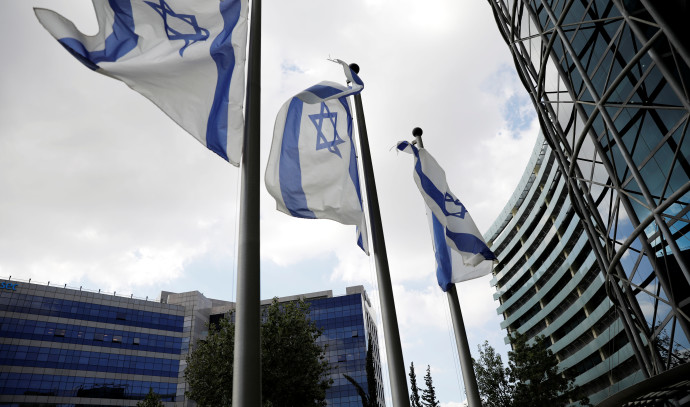ARTICLE AD BOX
It’s not a safer place: Syria and the Mideast after Assad’s fall from power.
By EFRAIM INBAR DECEMBER 12, 2024 00:15 SYRIAN CARETAKER prime minister Mohammed al-Bashir attends a meeting with the transitional cabinet in Damascus yesterday. The demise of the Assad regime will not turn Syria, nor the Middle East as a whole, into a better place, the writer maintains.
(photo credit: Al Arabiya TV/Reuters)
SYRIAN CARETAKER prime minister Mohammed al-Bashir attends a meeting with the transitional cabinet in Damascus yesterday. The demise of the Assad regime will not turn Syria, nor the Middle East as a whole, into a better place, the writer maintains.
(photo credit: Al Arabiya TV/Reuters)
The rapid collapse of the Bashar Assad regime in Syria caught everyone by surprise. The swift disintegration of the Syrian military did not leave Syria’s allies, Iran and Russia, sufficient time to intervene effectively on Assad’s behalf. The dramatic turn of events in Damascus dealt a severe blow to Iran’s regional influence after decades in which it had been allied with the Assad dynasty.
The loss of Syria has negatively affected Iran in several ways. It cut off Tehran’s territorial contiguity with Lebanon, controlled by its main proxy, Hezbollah, a Shi’ite terrorist organization. This now hampers Iran’s efforts to rebuild Hezbollah’s military formations, which took a beating from Israel.
Iran also lost one of its avenues for subverting Jordan, which borders Syria. Since Russia and Iran, members of the anti-Western alignment, are the immediate losers in the evolving situation, the developments in the country are a welcome outcome for the United States.
Israel has once again demonstrated that it is a valuable ally. Its air force has left Iran’s skies defenseless. It has almost annihilated Hamas, and it bled Hezbollah, both of which are Iranian proxies. These actions inadvertently triggered revolutionary change in Syria and subsequently the decline of the Iranian-led bloc. This is good news for the West and like-minded states in the Middle East.
Beating Iran to the punch
Israel could do another favor to the West by capitalizing on the developments and attacking Iran’s nuclear infrastructure. Preempting nuclearization of Iran is more urgent than before the fall of Syria, because Tehran, according to a recent International Atomic Energy Agency report, has “dramatically accelerated uranium enrichment.”
Iran may decide to expedite its nuclear efforts to compensate for its current weakness and enhance its deterrent power since its proxies have been rendered less relevant. The optimal window for action is the interregnum until president-elect Donald Trump enters the White House. At stake is the nuclearization of the Middle East and the potential collapse of the international Treaty on the Non-Proliferation of Nuclear Weapons if Iran goes nuclear.
Lebanon may now be able to free itself from Hezbollah’s yoke, although its political leaders have not displayed great courage in the past. The country’s political system is suffering from prolonged paralysis that has led it to an economic abyss and widespread destruction.
Yet, the demise of the Assad regime will not turn Syria, nor indeed the Middle East as a whole, into a better place. The assortment of radical Islamist groups that have taken over Damascus has little interest in democracy and human rights.
In Damascus, the tyranny of the Assad dynasty has been substituted by dictators espousing an Islamist agenda, with little tolerance for dissent of any kind. They are the heirs of the fanatical ISIS organization. There are therefore serious concerns about the future of minorities in Syria such as the Kurds, Druze, Alawites, and Christians. The hopes for a political evolution toward a more benign political system are hardly founded.
The worst outcome for the Syrian people is the chaos that may well ensue following Assad’s departure. The ability of the rebels to build a centralized polity instead of a fragmented state ruled by different militias is not self-evident. The political culture of the Arabs in Iraq, Yemen, Sudan, and Libya points toward a sad political trajectory.
Stay updated with the latest news!
Subscribe to The Jerusalem Post Newsletter
The events in Syria herald the ascendance of Turkey in the region. President Recep Tayyip Erdogan’s Turkey has supported the Sunni extremist presence in Syria. It also occupied a long strip of land along and south of the Turkish-Syrian border. In these territories, Turkish banks and post offices operate in a manner similar to that of northern occupied Cyprus. Erdogan, a Sunni Islamist – Turkish style – entertains dreams of Ottoman imperial grandeur.
While formally a part of the Western security structure, Turkey conducts a foreign policy that is often at odds with Western preferences. Turkey applied for membership in BRICS, an anti-Western bloc. Erdogan helped Iran circumvent Western economic sanctions. He is a friend of Qatar, the main patron of the Muslim Brotherhood, and he also backs Hamas, which has been designated as a terrorist organization by the West.
Turkish generals close to Erdogan articulated the vision of an Islamist army attacking Israel. The possibility of having a Turkish-backed Islamist state on its northern border is not an enticing option for Jerusalem.
The weakening of Iran, a historic rival of the Ottomans, inevitably feeds Turkish ambitions and adventurism. Turkish troops are already deployed in Iraq, Syria, Qatar, Djibouti, and Libya. In contrast to most NATO members, Turkey under Erdogan has an appetite for growing influence and is ready to fight.
FIFTEEN MONTHS after October 7, 2023, Israel is in a much better position. The defeat of its enemies is clear and the unintended consequence of its actions – the fall of Assad – changes the regional balance of power. Israel looks strong again. This perception is reinforced by a friendly incoming US administration. Friends and foes alike will treat Israel accordingly.
Israel’s policy should be in sync as much as possible with the current and future American administrations. The interim period until January 20, 2025, allows Israel greater freedom of action. Indeed, Israel has destroyed most of the Syrian military and has improved its defensive posture in Syria.
Military actions should be accompanied by strengthening relations with local actors such as the Kurds and Druze in Syria. Maybe even the Alawites could become partners. Similarly, ethnic politics in Lebanon provide an opportunity for change. In any case, political engineering beyond Israel’s borders is to be pursued with great caution.
Recent developments also provide an opportunity to strengthen and expand the Abraham Accords. The Trump administration will find this more than welcome; a strong Israel, apprehensions about Iran, and a supportive America were the elements that led to the accords.
Unfortunately, Israel has obtained this position only after enduring a costly war initiated by Hamas. This is the price the Jewish state has to pay periodically to survive in a tough neighborhood.
The writer is president of the Jerusalem Institute for Strategy and Security and chair of the Department of Strategy, Diplomacy, and National Security at Shalem College.

 2 weeks ago
94
2 weeks ago
94








 English (US) ·
English (US) ·